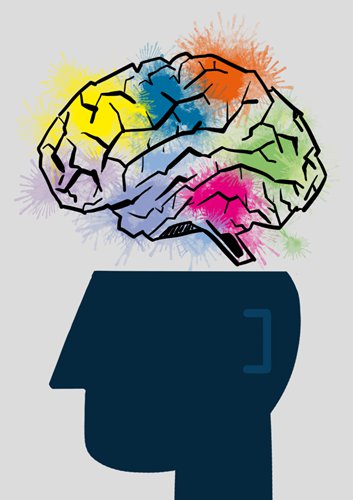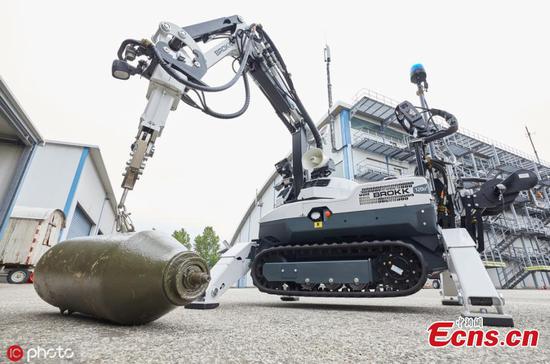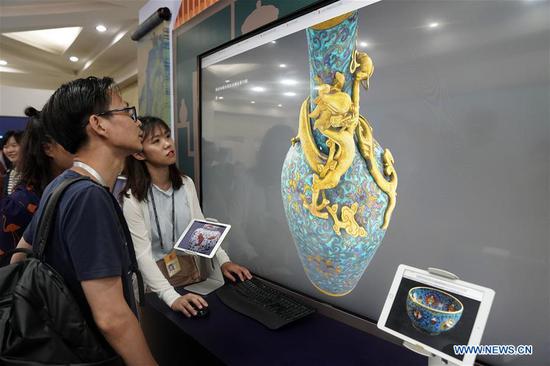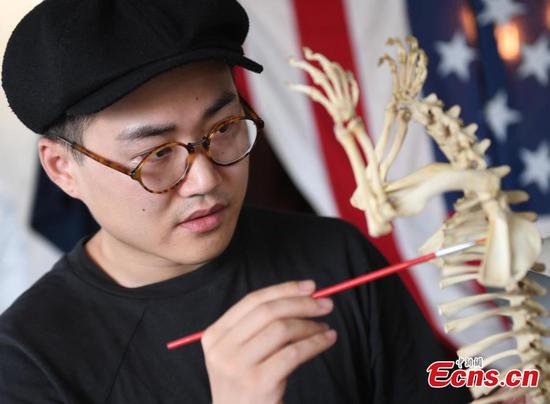
Institute of Brain Science of Fudan University is researching human brain power. (Illustration: Chen Xia/GT)
Too early to enter into clinical trial: experts
Elon Musk's ambitious plans for a brain-computer interface trended heavily on Chinese social media Thursday, with Chinese experts warning that the tech visionary's pronouncements may have jumped the gun as human beings remain relative novices in their understanding of the human brain.
Tesla and SpaceX CEO Musk said at a news conference on Tuesday night local time in San Francisco that a start-up company he set up two years ago, Neuralink, has successfully tested devices that connect the brains of rats and monkeys with smart phones.
The devices consist of a tiny chip connected to 1,000 microscopic wires. The chip features a USB-C port and connects via Bluetooth to a computer worn over the ear and to a smart phone, CNN reported.
The devices are installed in the brain by a robot that drills 2 millimeter holes in the skull. The chip then plugs into the borehole in the patient's skull, according to CNN.
The potential fusion of science fiction with science fact appeared to capture the imagination of internet users across the Sina Weibo platform. Some joked The Matrix had arrived, while others said Musk was an alien.
Others lauded that the technology will further narrow the gap between the virtual and the real world. "Tesla drivers can use the technology to link with their cars and then they can drive cars with their minds," posted a Sina Weibo user.
Hashtags with topics related to Musk's plan on Sina Weibo have been viewed nearly 20 million times as of press time and some whimsical netizens even teased that "craniotomy? Can we do it in a more friendly way?"
Many Chinese medical experts said Musk is a "madman" and it is unlikely for the plan to enter clinical experiments in the near future.
It was technologically impossible to apply a brain-computer interface to a human being, said Ma Qingguo, head of the Academy of Neuroeconomics and Neuromanagement at Ningbo University.
Musk said the Neuralink system could be used to treat brain disorders like Alzheimer's or Parkinson's disease, and ultimately could "preserve and enhance" brain function, the Business Insider reported. A monkey has been able to control a computer with its brain through the system, it reported.
Success with one monkey does not prove the technology ready for clinical trials, which "require more successful cases to validate its safety and effectiveness." said Hong Bo, a professor at the department of biomedical engineering at Tsinghua University in Beijing.
"Ethical approval is also an important prerequisite," Hong said.
Some brain doctors in China worried such surgery may have side effects, including nervous disorders and epilepsy.
A poll on Sina Weibo showed that 1,421 out of 3,779 said they were willing to give the technology a try, using the mind to control a smartphone.
Too early
The earliest version of the technology would first be used to help paralyzed patients control their smart phones and computer keyboards, The Telegraph of London reported. Then it will be applied to patients with brain disorders and ultimately will allow brains to link with computers, augmenting their intelligence and allowing them to compete with superhuman AI.
The company will start trials on humans in 2020 if they can obtain approval from US regulator Food and Drug Administration (FDA), according to the report.
It was hard to tell whether the FDA would approve trials given the ethical issues, said Liu Changqiu, a health law expert and research fellow at the Shanghai Academy of Social Sciences. Liu said he thought it was "a little hasty" to launch human trials.
Xue Fangzheng, deputy secretary general of the China Chongqing Robot Industry Alliance, said that although clinical trials could be carried out in 2020, the company "still needed time to prove that the technology can be applied to patients."
Setting aside the technological difficulties, Xue pointed out that differences in physiology and health must also be taken into consideration.
"It wouldn't be easy for most normal people to accept installing chips in their brains in the short term," he said.


















































